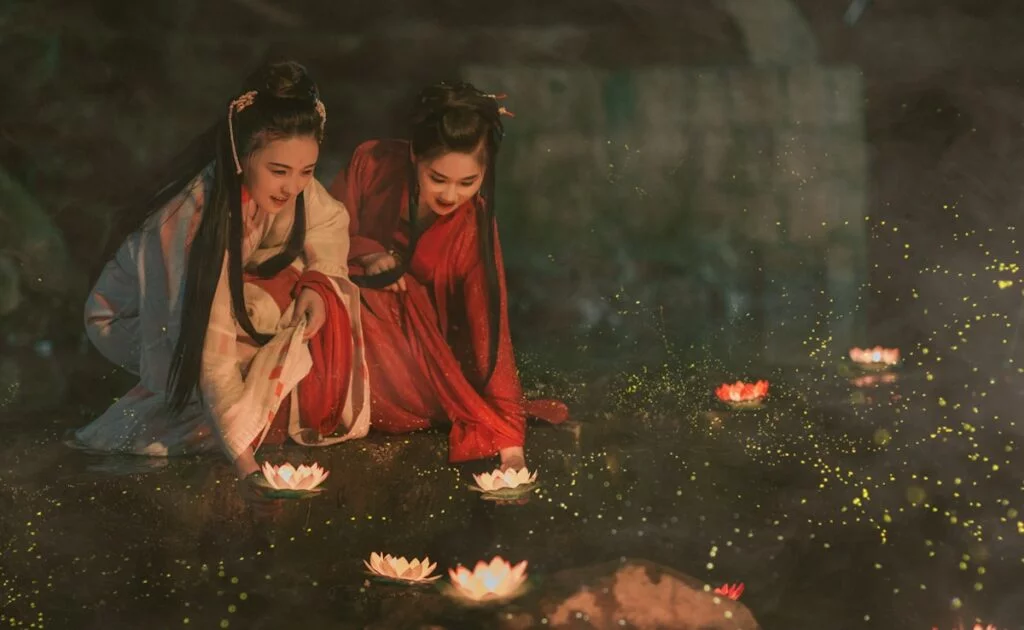Nüshu Script: Empowering China’s Young Women Through Ancient Words
Explore how Nushu Script, a unique language once used by Chinese women, is now empowering a new generation. Discover its revival and significance in modern China.

Deep in the heart of Southern China, a script developed long ago, used exclusively among women, is making a striking comeback among young Chinese women, heralding a revival of both cultural identity and a unique form of female empowerment. This script, known as Nüshu, originated in the Hunan province’s Jiangyong County and for centuries remained a secret communicated only among women.
The Origins and Secrets of Nushu Script
Nüshu, literally translated as “women’s script,” is thought to have been developed by women in a society where formal education was often reserved for men. This script provided a private means of communication among women, mothers and daughters, a way to share their thoughts, hopes and frustrations. It’s fascinating to think of how these women, in their tightly bound societal roles, created a space for their voices, crafting narratives of their lives that would otherwise have been overlooked by history.
Traditionally, Nüshu was used to write poems, letters and journals, often embroidered into fabrics or written on fans and handkerchiefs. It was passed down from mother to daughter, from one friend to another, often as a part of “sworn sisterhoods” or within the confines of domestic compounds.
Nüshu is experiencing a renaissance among young Chinese women who view the ancient script as a conduit to their past and conduit for gender equality and cultural pride. Various workshops, courses, and even apps are being developed to teach the nuances of Nüshu, making it accessible to a global audience.
Educational initiatives led by local enthusiasts and scholars have played a crucial role in this resurgence. They organize regular gatherings where women of all ages come together to learn Nüshu, thus creating a new form of “sisterhood” bonded not by blood but by shared cultural heritage.
Women’s Empowerment
Nüshu’s revival is not just a cultural exercise; by reconnecting with this language, young women in China are not only preserving a historical legacy, they are also making a statement about the importance of women’s spaces and voices in society. It’s empowering to see women today convert an art form, once born from oppression, into a powerful tool for education and independence.
Many enthusiasts see Nüshu as a symbol of resistance against ancient subjugation and a celebration of women’s resilience. As they translate modern thoughts and stories into the script, they reconnect with a lineage of female strength and intellect, fostering a sense of pride and achievement.
Despite its growing popularity, Nüshu still faces challenges in terms of widespread recognition and understanding. The script is complex and mastery of it requires dedication and time, resources that not everyone can commit. The script’s practical application in modern times is limited, being more a cultural artifact than a utilitarian language. However, the educational and emotional value it provides makes it a worthwhile pursuit.
The future of Nüshu could see its integration into more formal educational curricula, not just as a language lesson but as part of gender studies, sociology, and history courses. There’s also potential for digital advancements to play a critical role, utilizing AI and machine learning to translate and preserve thousands of artifacts written in Nüshu.
The revival of Nüshu is a testament to the enduring spirit of its creators and users. For centuries, it provided a voice to those silenced by societal norms, and today, it enriches the lives of young women looking for connection with their cultural and feminine heritage.
The story of Nüshu is not just about remembering a script; it’s about recognizing and celebrating the strength and ingenuity of women, past and present. As this script once again takes its place in the cultural lexicon, it continues to empower and inspire, echoing the voices of its founders through the ages.
Do you want to share your story and inspire our readers ? Know that YOUR EXPERTISE is paving the way for a fairer, happier society.




